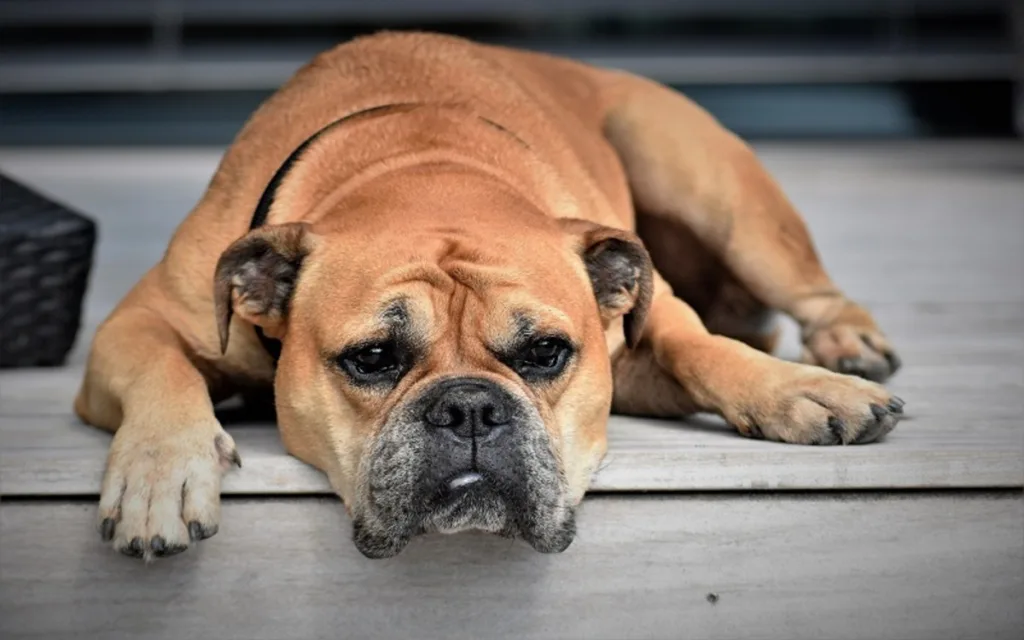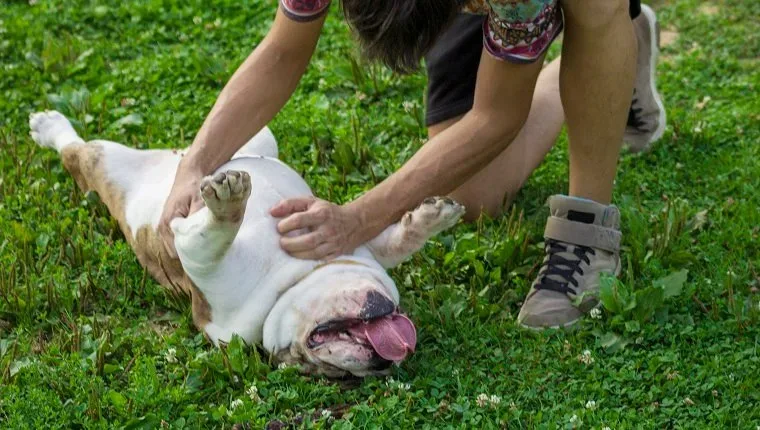Dog Stomach is Gurgling: If you have ever had an interruption with a gurgling while feeding your dog, you may be wondering what the noise is all about.
Those belly rumbles have a variety of causes and soft intermittent gargles are completely normal. But sometimes roaring can indicate a serious health problem. Below we will reveal the most common causes of dog bloating and when you should be concerned.
Common Reasons to Do Dog Stomach Gurgling
Normal digestion – In most cases, dog stomach sounds are not a concern. If our own stomachs are randomly whispering all day, so can our furry friends. It is a normal part of digestion and breaks down food. Also known as borborygmi, gurgling sounds often occur when gas is moving through the gastrointestinal tract.
Hunger – Hunger cries are slightly louder than normal digestive sounds and occur when your dog goes without food for a while. If your dog is starving regularly, try to introduce short, frequent mealtimes.
Also Read: Traveling with dogs Internationally especially to Canada
Air – If your dog eats too quickly they can breathe air all at once, which can lead to excessive barking. If eating too fast is a problem for your dog, try using a slow feed bowl or playing a game at mealtimes.
Changes in diet – Sudden changes in your dog’s diet can impair their digestion. You need to change their diet regularly so that Tom does not get upset.
Eating What They Should Not Do – Dogs are infamous scavengers and eat almost anything. But if they eat anything fresh or too rich, it can lead to gurgling in the stomach. Innocent looking table scraps can also send your dog’s stomach off-kilter.
When to worry about Dog Stomach Gurgling?

The above causes are relatively harmless and not a big cause for concern. But when dog stomach gurgling is paired with the following symptoms, it indicates a more serious problem.
- Vomiting
- Diarrhea
- Lack of appetite
- Laziness
- High drooling
- High gas
- Dehydration
- Swollen, bloated abdomen
These symptoms can be caused by:
- Gastrointestinal obstruction – If your dog eats a ball, toy or stone, for example, it can cause intestinal obstruction. This is an emergency and requires surgery.
- Inflammatory bowel disease – Dogs can develop IBD in humans. This condition causes inflammation in the intestines and interferes with normal digestion. IBD can be managed with medication and a special diet. The veterinarian will perform blood tests and prescribe the appropriate treatment.
- Swelling – Swelling is a serious condition that can be fatal if left untreated. In cases of bloating, the stomach fills with gas and creates a swollen, bloated stomach. If you notice signs of bloating, see your veterinarian immediately.
- Liver disease – Liver disease stops a dog’s liver from removing toxins from the body. This condition is a serious health problem and requires immediate attention from the vet. And medications and dietary changes can help maintain symptoms.
- Pancreatitis – Pancreatitis is often caused by eating a high fat diet. When the pancreas becomes inflamed, it can cause damage to the pancreas and other organs due to digestive enzymes. You can have home remedies for your dog’s symptoms with medication and a special low-fat diet.
If your dog adopts a ‘prayer attitude’, with their head and shoulders down and their front legs extended, it indicates that your dog has a stomach ache. Always see your veterinarian if you notice symptoms of gingivitis and above. Better safe than being sorry.
If your dog enjoys the occasional gurgling after a meal and they are happy with themselves, there is usually nothing to worry about.
Remember to help your vet
If your dog is really vomiting or having watery stools, take a small sample of it before you go to your veterinarian. Samples can be a big help in determining why your dog makes loud noises in the stomach and why it does not eat.
Keep your latest samples in a clean container. The vomit sample should be in one container and the stool sample should be in another.
Use an appropriate poop scooper for the above two things. Also, be prepared with the symptoms you notice so your veterinarian can ask similar questions:
- How many days has it been since your dog last ate?
- When was the first time you noticed your dog vomiting and urinating?
- How is he sleeping?
Your veterinarian may also suggest that your dog stays in the clinic for several days, especially when he is not eating. Subsequent treatments depend on the diagnosis. Listen to what your veterinarian has to say to treat stomach gurgling and its underlying cause.

